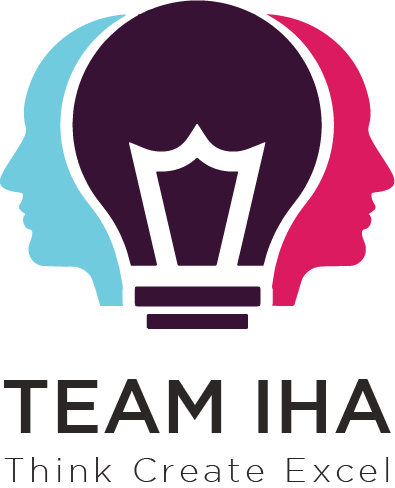Artificial Intelligence (AI) has always been an exciting space, but 2025 is proving to be a turning point. From making our smartphones smarter to transforming entire industries, AI is evolving faster than ever. In this two-part blog, we’ll take a look at the Top 10 current trends in AI for 2025 that are not just shaping the tech world but are also changing how we live, work, and think.
Summary of All 10 Latest AI Trends
| AI Trend Name | Impact Sector | Key Benefits | Real-World Examples |
|---|---|---|---|
| 1. Generative AI Gets Smarter | Creative, Tech, Marketing | Fast content creation, idea generation | Sora (video), Midjourney (images), ChatGPT |
| 2. AI Personal Assistants as Life Managers | Productivity, Business | Time-saving, task automation | Email drafting, smart scheduling, AI voice assistants |
| 3. AI in Healthcare Saves Lives | Healthcare, Wellness | Early diagnosis, personalized care | AI for cancer detection, wearable health devices |
| 4. Edge AI Reduces Cloud Dependence | IoT, Telecom, Automotive | Faster processing, privacy, offline use | Smart cameras, offline voice assistants |
| 5. AI + Cybersecurity = Smarter Protection | Cybersecurity, Finance | Threat detection, fraud prevention | AI-based firewalls, phishing detection systems |
| 6. AI Personalizes Education | EdTech, Schools, Training | Adaptive learning, student performance tracking | AI tutors, exam prep apps, voice learning tools |
| 7. AI-Powered Business Automation | Startups, SMBs, Enterprise | Reduce manual tasks, increase efficiency | AI chatbots, auto-reporting tools, CRM integrations |
| 8. AI in Marketing for Hyper-Personalization | Digital Marketing, E-com | Better targeting, increased ROI | Dynamic emails, product suggestions, AI ad creation |
| 9. AI Enhancing Creativity | Art, Design, Music | Boost productivity, reduce creative block | AI co-writing scripts, music mixing, design assistance |
| 10. Rise of Ethical & Regulated AI | Tech Policy, AI Research | Fair use, transparency, data protection | AI content labels, hiring of AI ethicists, privacy laws |
Here is the List of 10 Current Trends in AI
1. Generative AI Gets Smarter and More Creative
We’ve seen ChatGPT, Google Gemini, and others do some cool stuff, but in 2025, generative AI has gone next-level. Now, it’s not just writing text—it’s making music, creating 3D designs, generating entire video scenes, and even coding full applications.
Why it matters:
Creative professionals, marketers, teachers, and developers are using generative AI to cut down hours of work and bring their ideas to life instantly. It’s also being used in movie production, video games, and ad campaigns.
Popular tools: Sora (video generation), Midjourney (images), ChatGPT, Gemini Advanced
2. AI Personal Assistants Are Now Life Managers
Virtual assistants have moved beyond setting reminders and answering questions. In 2025, AI-powered personal assistants manage your calendar, respond to emails, handle customer service chats, and even suggest when you should take a break.
Why it matters:
Busy professionals, solopreneurs, and even students are relying on AI to boost productivity and avoid burnout.
Bonus: Some AI assistants are now voice-first and can mimic human tone almost perfectly.
3. AI in Healthcare Is Saving Lives
AI is becoming a life-saver—literally. In 2025, it’s being used to detect diseases earlier, assist in surgeries, and personalize treatment plans. Tools powered by AI are helping doctors diagnose conditions through medical images and even detect signs of mental illness from speech patterns.
Why it matters:
This tech is making healthcare more affordable, accessible, and accurate—especially in countries with limited medical resources.
Example: AI-based diagnostic tools for early cancer detection and wearable AI devices tracking heart health in real-time.
4. Edge AI Is Reducing Dependence on Cloud
Edge AI means processing data closer to the device, not on a remote server. Think of AI happening right inside your smartphone, smartwatch, or even your car—without sending data to the cloud.
Why it matters:
It speeds up processing, improves privacy, and works better in places with slow internet. Great for real-time applications like autonomous vehicles, drones, and IoT devices.
Real-world use: Smart cameras, offline voice assistants, and AI-powered security systems.
5. AI and Cybersecurity Are Joining Forces
As threats online grow more complex, AI is stepping in to protect us. In 2025, cybersecurity systems powered by AI can detect fraud, block attacks, and fix vulnerabilities faster than any human team.
Why it matters:
With more businesses and users online than ever before, this is helping prevent data breaches and financial loss on a massive scale.
AI in action: Detecting phishing attacks, spotting malware patterns, and monitoring suspicious behavior 24/7.
6. AI in Education Is Personalizing Learning
In 2025, AI is becoming the go-to teaching assistant. AI-powered platforms are now creating personalized learning paths based on how fast (or slow) a student learns, which subjects they struggle with, and even how they like to study.
Why it matters:
This is a game-changer for students, teachers, and parents. AI is helping reduce dropout rates, improve focus, and make learning fun—even in rural or underserved areas.
Use cases:
- AI tutors helping students prep for exams
- Real-time feedback on assignments
- Voice-based language learning apps with AI coaches
7. AI-Powered Automation Is Taking Over Repetitive Work
In 2025, AI tools aren’t just replacing routine tasks—they’re automating full workflows. From handling customer support queries to generating reports and scheduling social media posts, AI is doing it all.
Why it matters:
Startups, freelancers, and even large businesses are saving time and money by using AI to handle back-end tasks, freeing up humans for more strategic work.
Real examples:
- AI chatbots offering 24/7 customer service
- Automated content writing for websites and blogs
- AI tools syncing data between CRMs and marketing platforms
8. AI in Marketing Is Hyper-Personalizing Ads
Forget generic marketing. In 2025, AI is delivering ultra-personalized content to every user, based on their behavior, interests, and even mood.
Why it matters:
Businesses are seeing higher ROI because AI tools helps them reach the right person with the right message at the perfect time.
What it looks like:
- Dynamic email campaigns written by AI
- Product suggestions based on browsing patterns
- AI-generated video ads that adapt to viewer profiles
9. AI Is Enhancing Human Creativity, Not Replacing It
There’s a big shift in mindset in 2025. Instead of viewing AI as a threat, creators are seeing it as a collaborator. Writers, musicians, designers, and artists are using AI to brainstorm ideas, draft outlines, and test creative variations.
Why it matters:
AI is no longer about replacing humans—it’s about enhancing their potential and reducing creative block.
Example:
- Artists using AI tools to explore color schemes
- Musicians mixing tracks with AI-generated loops
- Writers using AI to co-write scripts, poems, and novels
10. Ethical AI & Regulation Are Taking Center Stage
With all this growth, one big trend in 2025 is the focus on responsible AI. More governments and companies are pushing for ethical use of AI, data transparency, and fairness in algorithms.
Why it matters:
AI systems are powerful, but if unchecked, they can become biased, unsafe, or misused. So, ethical AI is now a key priority globally.
Key developments:
- AI-generated content is now labeled clearly
- Companies are hiring AI ethicists
- New laws are being introduced to protect user privacy and data
Top 5 FAQs on AI Trends in 2025
The key trends include generative AI, AI in healthcare, edge computing, AI automation, and ethical AI regulations.
AI is helping with early disease detection, medical imaging analysis, wearable health monitoring, and personalized treatment plans.
It’s used to create videos, music, images, written content, and code, making it useful for marketing, design, and software development.
With the rise of AI in daily life, ethical AI ensures fairness, prevents bias, and protects user privacy through transparent practices.
AI automates tasks, boosts productivity, personalizes marketing, enhances customer service, and helps in smarter decision-making.
Conclusion
The AI landscape in 2025 is more exciting, more useful, and yes—more human. These trends aren’t just about machines getting smarter; they’re about making our lives better, easier, and more connected. Whether you’re a student, marketer, developer, business owner, or just someone curious about the future—AI is already part of your journey.

